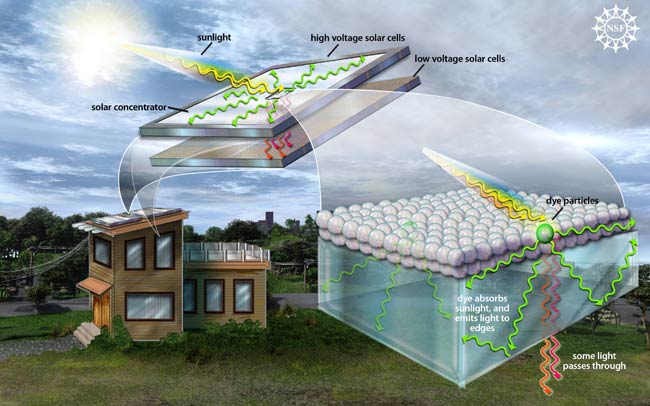Computer Game Aims to Offer Real Energy Solutions

Get the world’s most fascinating discoveries delivered straight to your inbox.
You are now subscribed
Your newsletter sign-up was successful
Want to add more newsletters?

Delivered Daily
Daily Newsletter
Sign up for the latest discoveries, groundbreaking research and fascinating breakthroughs that impact you and the wider world direct to your inbox.

Once a week
Life's Little Mysteries
Feed your curiosity with an exclusive mystery every week, solved with science and delivered direct to your inbox before it's seen anywhere else.

Once a week
How It Works
Sign up to our free science & technology newsletter for your weekly fix of fascinating articles, quick quizzes, amazing images, and more

Delivered daily
Space.com Newsletter
Breaking space news, the latest updates on rocket launches, skywatching events and more!

Once a month
Watch This Space
Sign up to our monthly entertainment newsletter to keep up with all our coverage of the latest sci-fi and space movies, tv shows, games and books.

Once a week
Night Sky This Week
Discover this week's must-see night sky events, moon phases, and stunning astrophotos. Sign up for our skywatching newsletter and explore the universe with us!
Join the club
Get full access to premium articles, exclusive features and a growing list of member rewards.
At the American Chemical Society's (ACS) 238th National Meeting this week in the nation's capital, an interesting thought experiment will focus the creative genius of hundreds of scientists on how best to find sustainable new sources of energy. The exercise will use a computer game format.
"This is a whole new trend in tackling problem solving," said April Orr, Assistant Director of Member Research and Technology for the ACS and the experiment's manager. "It leverages the intellectual power of chemists for the greater good. The idea is to get chemists to engage and think about how to solve future energy challenges. It is a computer game, but one with serious goals."
More than 12,000 chemists and other researchers are at the meeting.
Players will use their own computers to register on a Web site using an alias or an avatar. The computer asks players to consider a fictitious yet plausible scenario in which there is a rich abundance of cheap, efficient, and "green" energy sources in the year 2026, which happens to be the 150th anniversary of the Society, according to a statement released today. The game asks players to imagine the implications of this scenario of abundant, sustainable energy, including its benefits and challenges. Key questions include:
- What are the implications of massive energy storage?
- What inventions are possible?
- Risks associated with expanded use of metal ion batteries?
- Implications for mining and municipal solid waste disposal?
- What if the entire network of wires becomes obsolete?
Players will submit their ideas in response to questions related to that scenario. A moderator will review their answers. Players can also submit so-called "imagination" cards that express how they feel toward certain ideas. Players choose "positive" imagination cards to rate a best case scenario and "dark" imagination cards to rate a worst-case scenario. Players and moderators then pick their favorite ideas.
The moderator then will rate players on the overall quality of their ideas, assigning points. The players with the most points win the game. Ideas from the game will be made available to the scientific community, policy makers, and others, and some could possibly be applied in real life to help the world respond to future energy challenges.
"Our mission as a leading scientific society is to engage our members in discussions and perhaps even solutions, about pressing global challenges," said Denise Creech, ACS director of membership and scientific advancement. "Chemists, after all, will be part of the solution to emerging challenges, like energy, whether it is one of abundance or scarcity."
Get the world’s most fascinating discoveries delivered straight to your inbox.
- Top 10 American Innovations
- Innovation: Big Ideas for the Future
- Alternative Energy News & Information
{{ video="LS_090814_Green-Gasoline" title="Green Gasoline from Naturally Stored Solar Energy" caption="Researchers have made a breakthrough in the development of greenrngasoline, a liquid identical to standard gasoline yet created fromrnsustainable biomass sources, such as switch grass and poplar trees. Credit: NSF" }}
 Live Science Plus
Live Science Plus











